Deep in the jungles of Papua, Indonesia lays a large bay – Cenderawasih Bay. Cenderawasih Bay contains a National Park which is renowned for hosting incredible wildlife. Papua may be one of the few remaining last frontiers on the planet, with huge expanses of the jungles relatively unexplored. Many people travel to Cenderawasih Bay to dive some of the wrecks and see Birds of Paradise, although not everyone is aware of the special underwater residents found here. The whale sharks (Rhincodon typus) are relatively new residents and have a very good reason to stay here.
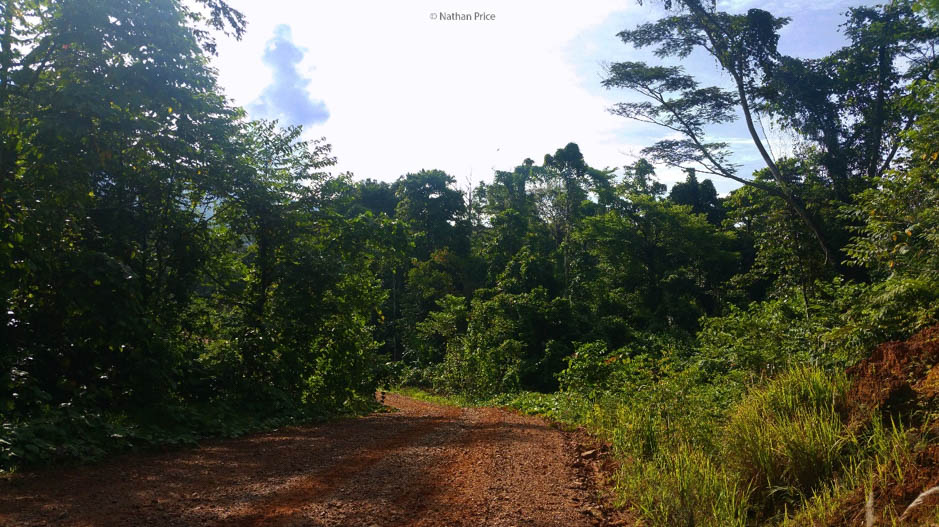
Some of the local fishermen operate ‘bagans’, or fishing platforms. There are numerous platforms in the southern part of the marine park, close to the Kwatisore village. At night, the nets are lowered into the water, with spotlights switched on to attract Ikan puri, baitfish of just a few inches. The baitfish are then used to catch mackerel and scads, but there is generally a huge amount of baitfish left in the nets.
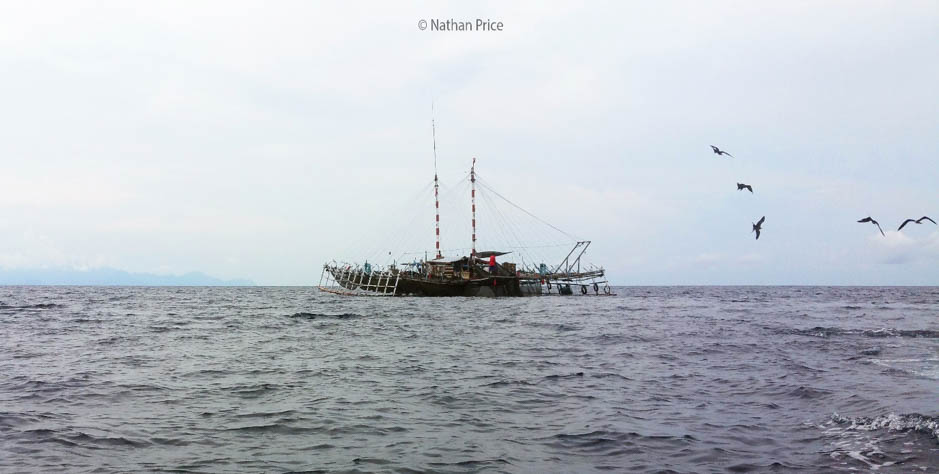
The whale shark is the largest fish species, meaning they require a decent amount of sustenance, and these gentle beasts have found an effortless way of feeding. The whale sharks have learned to suck the fish out of the net, meaning the biggest fish in the world are almost a guaranteed sighting here.
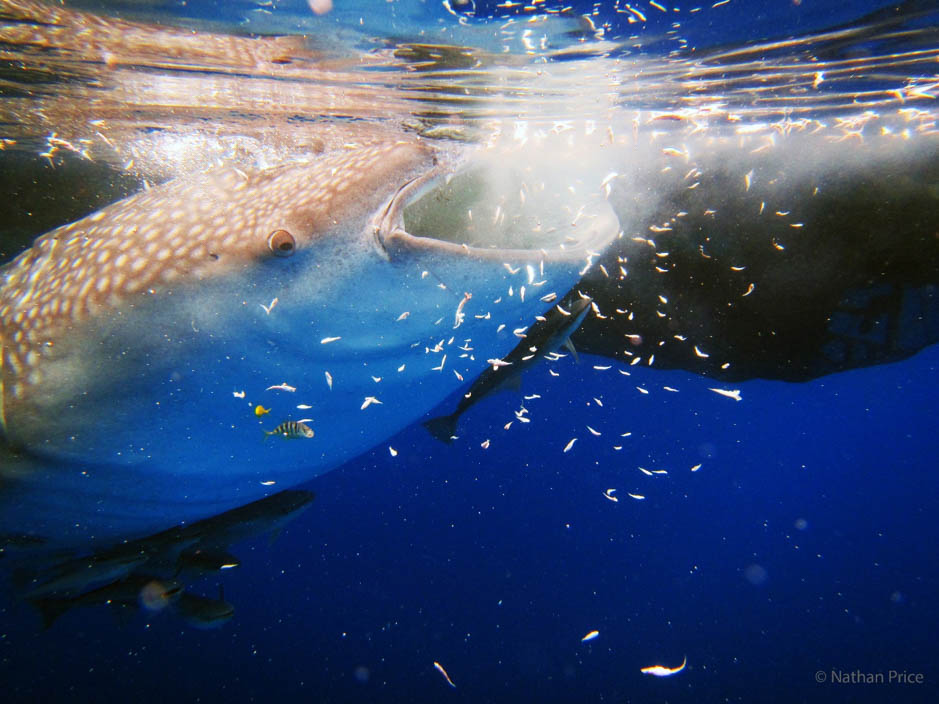
Some fishermen feed the sharks because they consider their presence good luck, and any unused fish are also discarded into the water. Some of the fishermen here enjoy feeding and interacting with the gentle giants, and when the fisherman feed the sharks, it causes a rather slow feeding frenzy.
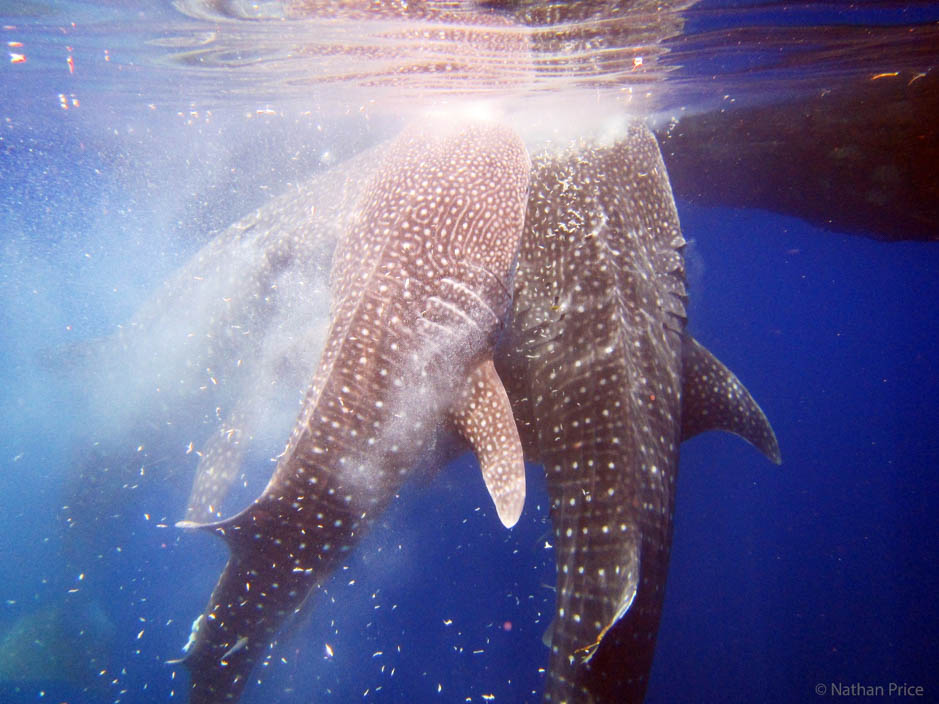
The sharks hang vertically in the water as they gulp, ignorant of everything around them. When the gentle giants are feeding they occasionally swim into each other, snorkelers, divers and even the hull and propeller of the boats. The locals witnessed this and gave the sharks a particular name, ‘hiu bodok’ which translates to stupid shark
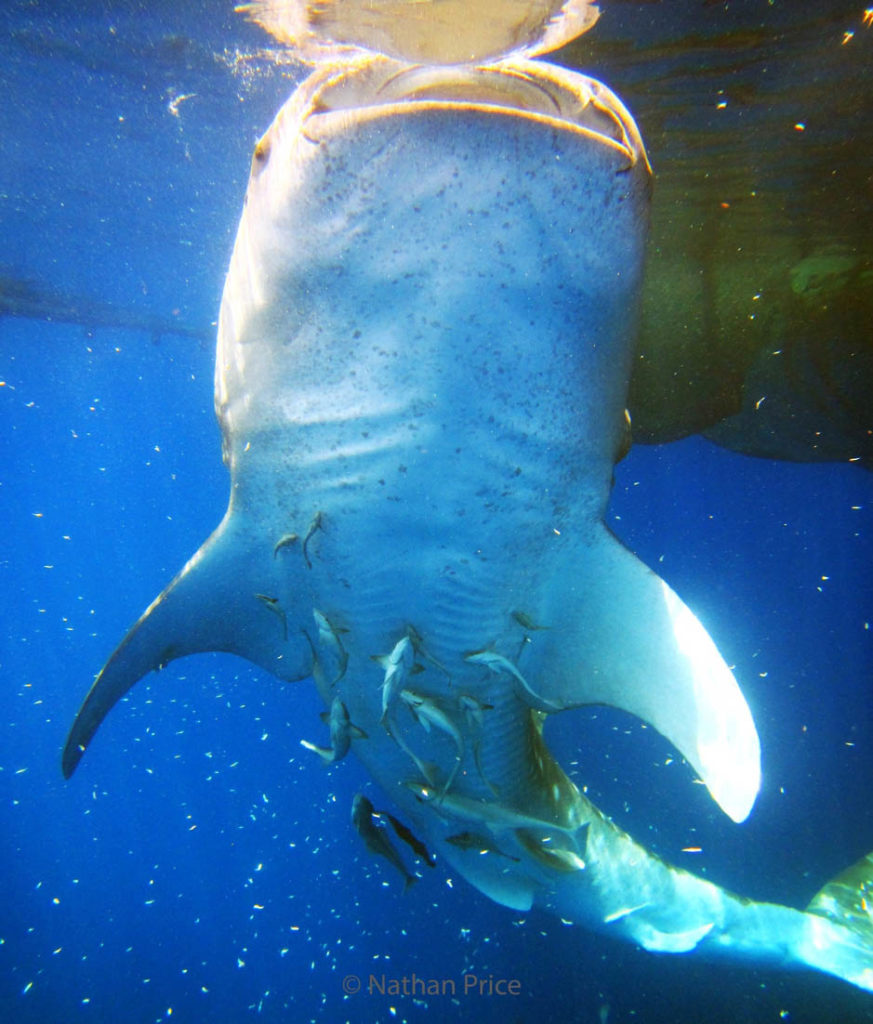
Very little is known about whale sharks but we do know whale shark fins are worth an awful lot on the market in Hong Kong, and the shark finning industry is thriving in Indonesia. The sharks have been known to get tangled in the fishing nets, some are released but not all of them make it out of the nets alive.
We also know that food provisioning has its pros and cons. Some species can benefit from it, and it may be a method of sustainable tourism creating a much-needed economy in some parts of the world, but there is no question that food provisioning disrupts the natural balance of the food web, and ecosystem functioning.
Over the past few years, Cenderawasih Bay has become a popular location for whale shark encounters. Many liveaboards travel there as scuba diving seems to be the preferred option to make some memories with the sharks.






